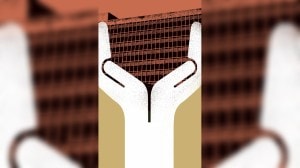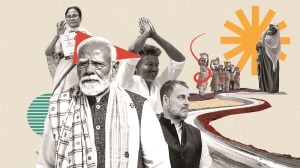Printline
The round off of decade, century and millennium on Father Time's chronometer brings home a global dichotomy of promise and peril, of achie...

The round off of decade, century and millennium on Father Time8217;s chronometer brings home a global dichotomy of promise and peril, of achievement and affliction.
As champagne corks were popping with machinegun rapidity in holiday celebrations in Washington, Tokyo and Paris, the turn of the millennium dawned as just another grim moment of struggle for survival in remote villages in Senegal, Indonesia or Peru. But those moments of celebration and struggle were linked by far more than the change of dates on the world8217;s most accepted calendar. Technology and the flow of information, people and goods across borders at millennium8217;s turn are transforming basic human endeavor in ways that are still gathering force8230;.
The economic forces of globalisation powered by Anglo American model of capitalism, and the pooling of sovereignty pioneered by the welfare states of the European Union, will continue to shrink the importance of national boundaries and the powers of the nation state, which are at their lowestebb since the Treaty of Westphalia in 1648 established the modern state system.But this weakening of the state is helping to spawn a cultural backlash against globalisation and giving new force to ethnic and national identities. Much of the anxiety this backlash produces focuses on the United States and the preeminent position it has occupied in the world since the end of the Cold War, nearly a decade ago.
Jim Hoagland in the International Herald Tribune of January 3The United Nations is far stronger than the League of Nations, but still weak. It often applies sanctions as a substitute for force, but these hit innocent civilians hard and when flouted frequently still lead to force. It has increasingly subcontracted peacekeeping to others, such as Nigerian led troops in West Africa or Nato in Kosovo. This has its limits, too. Kosovo was billed as the first humanitarian war of the modern era, but it could be the last. Nato took on Serbia because it was relatively weak and on its border. Contrastthis with its inaction over Chechnya, further afield8230;Yet there is hope for better things from the new century.
It lies in the possibility that the world appears to be slowly gaining a moral majority, in the best sense of that term. The significant fact about this majority is that while it shares the interests of the Hague do gooders in controlling arms, it wants to do better by also tackling the roots of conflict8230;.
Editorial in Financial Times, December 31
Our political and economic models are changing as the Cold War recedes. We have learned that our leaders should be judged not by their ability to defeat enemies or conquer new territories, but on their capacity to extend prosperity and peace. Because even small countries can obtain the weapons to threaten not just adjacent lands but distant capitals, every nation has a critical interest in seeing every other nation do well8230;
The third millennium8217;s economy has to be a mutually beneficial construction of expanding productivity andshared prosperity, built around the engine of trade. It is easy to see a developing nation8217;s wealth as an opportunity for new markets. We must also perceive that a poor nation8217;s hunger is a danger for the wellbeing of the whole. One of the great goals for mankind in the opening decades of the new century must be to lift hundreds of millions of destitute people from poverty.
Editorials in The New York Times
- 01
- 02
- 03
- 04
- 05































